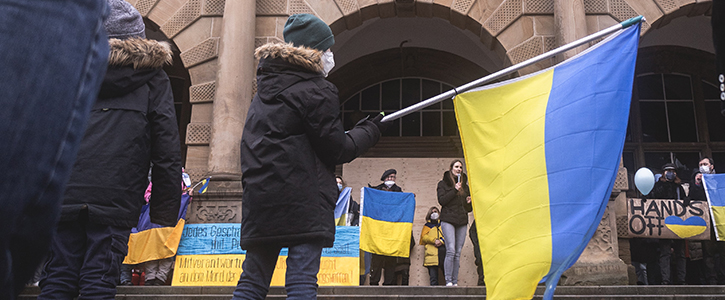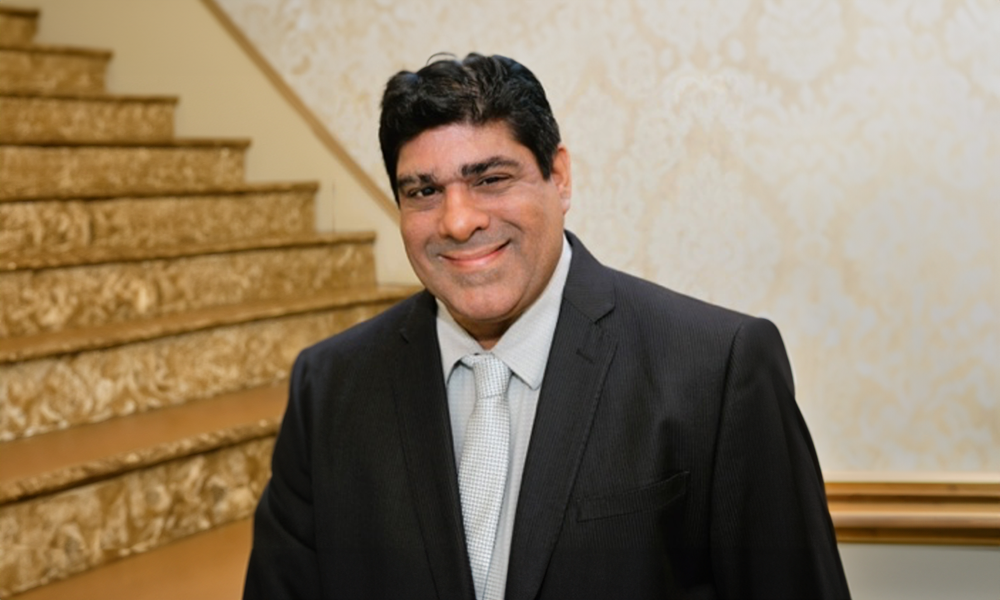As the Russian invasion of Ukraine enters its ninth week, Western New England University professors hosted a panel discussion to share insight and address the implications of the Ukraine conflict.
Moderated by Professor of Political Science Bill Mandel, the April 27th panel organized by the Department of History, Philosophy, Political Science, and Economics included panelists Professors Catherine Plum, Don Williams, and Anita Dancs. Faculty outlined the historical context and discussed the political, cultural, linguistic, and economic connections between Ukraine, Russia, and neighboring territories in light of the recent conflict.
Dr. Plum examined the historical background to the conflict, including the political and cultural ties between Russia and Ukraine, painful repression under Soviet rule, and the presence of Russian minorities in Eastern Ukraine.
"Some 5 million refugees, primarily women and children, have left Ukraine," said Plum. "There at least 7 million refugees within Ukraine whose apartments have been destroyed or who live in the war zone. We must plan for their long-term needs."
Dr. Williams compared the recent political trajectories and problems of corruption in both Ukraine and Russia since the fall of communism, highlighting the policies of Vladimir Putin and Ukrainian administrations. Dr. Dancs explored the impact of the conflict in neighboring Hungary and on international trade and food distribution.
After the faculty presentations, participants voiced their thoughts. Students and faculty asked questions related to historical comparisons, economic sanctions, the impact on global food and energy prices, neutral nations, refugees, and NATO's role and involvement among other issues.
"The conflict is uniting them as Ukrainians," said Plum. "National pride has increased and their identity as Europeans and their ties to Western Europe are also strengthening."
History and political science courses have been examining the history of the region and the present conflict from multiple perspectives this semester. Fall classes in European history and politics will engage in related discussions as the refugee crisis continues, posing further implications for the European political theater.
"The event was an amazing opportunity to bring together faculty and students deeply saddened by the ongoing conflict in Ukraine," said Dr. Plum. "It is important to consider the root causes and implications of the crisis given its global impact."





